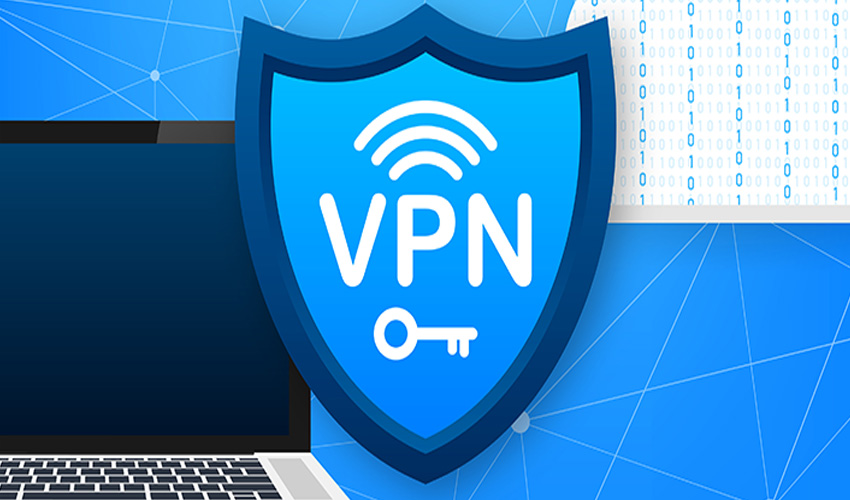


As the Pakistani government tightens its grip on internet access, the demand for Virtual Private Network (VPN) services has skyrocketed in the country. Recent events, such as the blocking of popular social media platforms like WhatsApp and Bluesky, have led to a 330% increase in VPN usage. However, this may soon come to an end as authorities have announced a new VPN policy which requires registration by November 30. While some argue for the necessity of VPNs for legitimate purposes, others have called for a complete ban due to concerns over potential misuse by terrorists.
Pakistan's Uprising Demand for VPNs: Government Tightens Internet Access
In recent months, Pakistan's internet landscape has witnessed a surge in the use of Virtual Private Networks (VPNs), as the government tightens its grip on online access. This surge has been fueled by the blocking of widely used social media platforms like WhatsApp and Bluesky, leading to a 330% spike in VPN usage according to Google Trends.
Background of Internet Censorship in Pakistan
Internet censorship in Pakistan has a long and complex history. The government has a history of blocking websites and content it deems offensive or a threat to national security. In recent years, the government has increased its efforts to control the flow of information online, citing concerns over terrorism and the spread of extremist content.
VPN Policy and Government Restrictions
In response to the rising use of VPNs, the Pakistani government has announced a new VPN policy. This policy requires all VPN providers to register with the Pakistan Telecommunication Authority (PTA) by November 30th, 2023. VPNs that fail to register will be blocked.
The government claims that this policy is necessary to prevent VPNs from being used for illegal activities, such as terrorism and money laundering. However, privacy advocates have raised concerns about the potential for abuse and the impact on legitimate VPN usage.
Top 5 FAQs
1. Why are VPNs used in Pakistan?
VPNs are used in Pakistan to bypass internet censorship by accessing blocked websites and content. They also provide anonymity and privacy by hiding the user's IP address, making it difficult to track their online activity.
2. Is it illegal to use a VPN in Pakistan?
Currently, it is not illegal to use a VPN in Pakistan. However, the new VPN policy requires all VPN providers to register with the PTA by November 30th, 2023. There is uncertainty about the legal implications for using unregistered VPNs after this date.
3. Will the government ban VPNs completely?
The Pakistani government has not announced a complete ban on VPNs, but there have been calls for it from some quarters. The government's position on the legality of VPNs may change in the future.
4. What are the concerns about VPN misuse?
Government officials have expressed concerns that VPNs can be used by terrorists and other criminals to hide their activities. However, it is important to note that VPNs can also be used for legitimate purposes, such as accessing region-restricted content or protecting privacy.
5. What are the consequences for unregistered VPNs?
Unregistered VPNs will be blocked in Pakistan after November 30th, 2023. This means that users will not be able to access these VPNs to bypass internet censorship or protect their privacy.

In a move to improve user experience, X (formerly known as Twitter), owned by Elon Musk, has purged approximately 1.7 million bot accounts from the platform. The bots were inundating reply posts with spam and irrelevant content, causing frustration among real users. This is the latest effort in X's ongoing battle against bot networks and marks Musk's dedication to creating a more secure and authentic experience for users. The organization is also implementing new moderation tools and features to prevent spam in direct messages. Users can now expect clearer responses and more meaningful interactions on the platform.

In a major move to cement its dominant position in AI development, WhatsApp has updated its business API policy to ban general-purpose AI chatbots from operating on its platform. This effectively blocks AI assistants rolled out by big tech rivals such as OpenAI and Perplexity, making Meta AI the only AI chatbot accessible through the platform. The move has drawn attention to the growing turf war in the AI industry and raises concerns over the unfair market advantage big tech companies have in AI development. However, WhatsApp has defended its decision by stating that its business API solution is primarily designed for customer support and not as a platform for chatbot distribution.

Facebook users who submitted a claim in the class-action lawsuit over data privacy violations are now receiving payouts up to $38. The settlement totaled $725 million, with nearly 18 million people requesting a cut. The payments are being distributed in several forms, including virtual prepaid cards and transfers to bank accounts. This settlement serves as a reminder of the value of personal data and the consequences of companies mishandling it.

The popular editing app Canva faced a major setback in India on Monday as users reported a widespread technical glitch. The app became inaccessible and links related to it also failed to open. The issue was not limited to one device, causing frustration among many users. Even those who managed to open the app were unable to download images to their desktop, making Canva practically unusable for the day.

Users of popular websites and mobile apps, including Snapchat, Duolingo, Zoom, and Roblox, are experiencing disruptions due to an outage affecting Amazon Web Services (AWS), the cloud computing division of tech giant Amazon. This outage has impacted millions of large companies that rely on AWS infrastructure for their websites and platforms. While AWS has reported significant signs of recovery, many are still experiencing issues. Stay tuned for updates on this developing story and let us know how you've been affected.

Under Elon Musk's leadership, X is testing a new interface on iOS that aims to increase user engagement by allowing them to easily access and interact with posts containing external links without leaving the app. This change aligns with Musk's broader strategy of turning X into an all-in-one app that offers content consumption, payment, communication, and interaction. In addition, X's overhaul of its recommendation system, which will rely on AI to understand content contextually, could potentially benefit smaller accounts by expanding their reach beyond traditional engagement-driven limits.

The popular first-person shooter, Black Ops 6, has a new glitch that allows players to be invulnerable and farm XP in the difficult Zombies mode on Terminus Island. This glitch is especially useful for unlocking unique camos faster. Players can follow simple steps to use the glitch, but it may take a few attempts to work. The glitch can be deactivated at any time by using the zipline near the docks.

Add some warmth and ambiance to your outdoor area with the Govee Outdoor Clear Bulb String Lights. These weather-resistant lights are perfect for any occasion, with customizable brightness and colors that can be easily controlled through the Govee app. And at a discounted price of $70, you can't go wrong with adding these lights to your outdoor decor.

Tecno has released a new addition to their Spark series in India, the Spark Go 5G, which boasts a 6000mAh battery and a unique camera setup. At a price of under Rs 10,000, it is claimed to be the thinnest in its price segment. Available in four colors and a single storage variant, the phone will be available for purchase from various online and offline stores starting July 21.

On Friday morning, the online ticket booking portal of Indian Railway Catering and Tourism Corporation (IRCTC) crashed, leaving thousands of users unable to complete their bookings for the upcoming Diwali and Chhath Puja holidays. The outage, believed to be caused by an overwhelming number of Tatkal booking requests, spiked sharply around 10 am and continued for several hours. Frustrated users flooded social media with complaints and memes, urging the IRCTC to improve its technology to handle peak traffic during festive seasons.